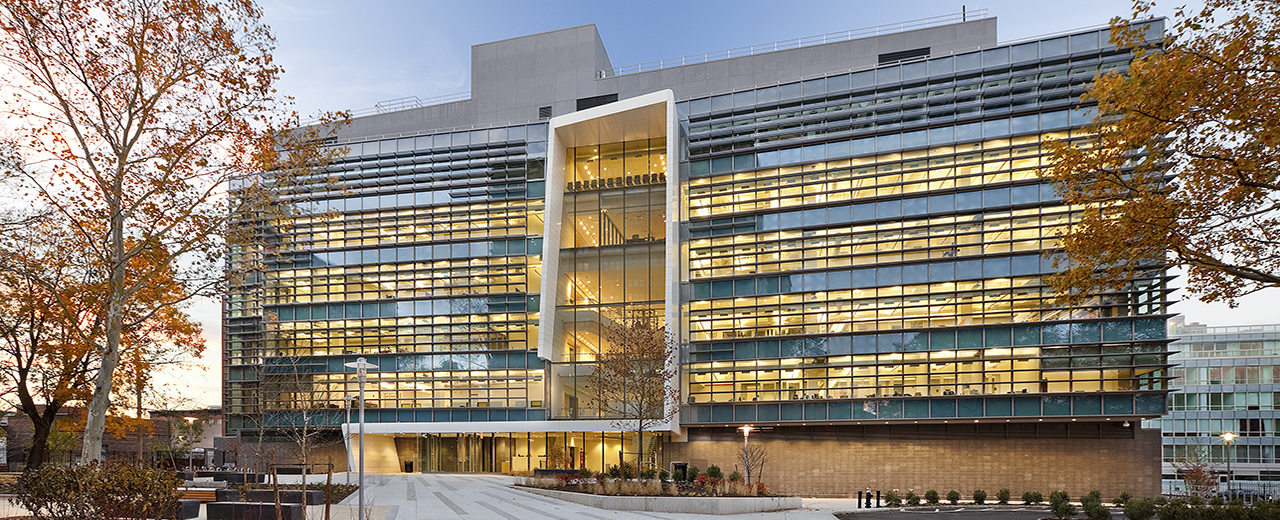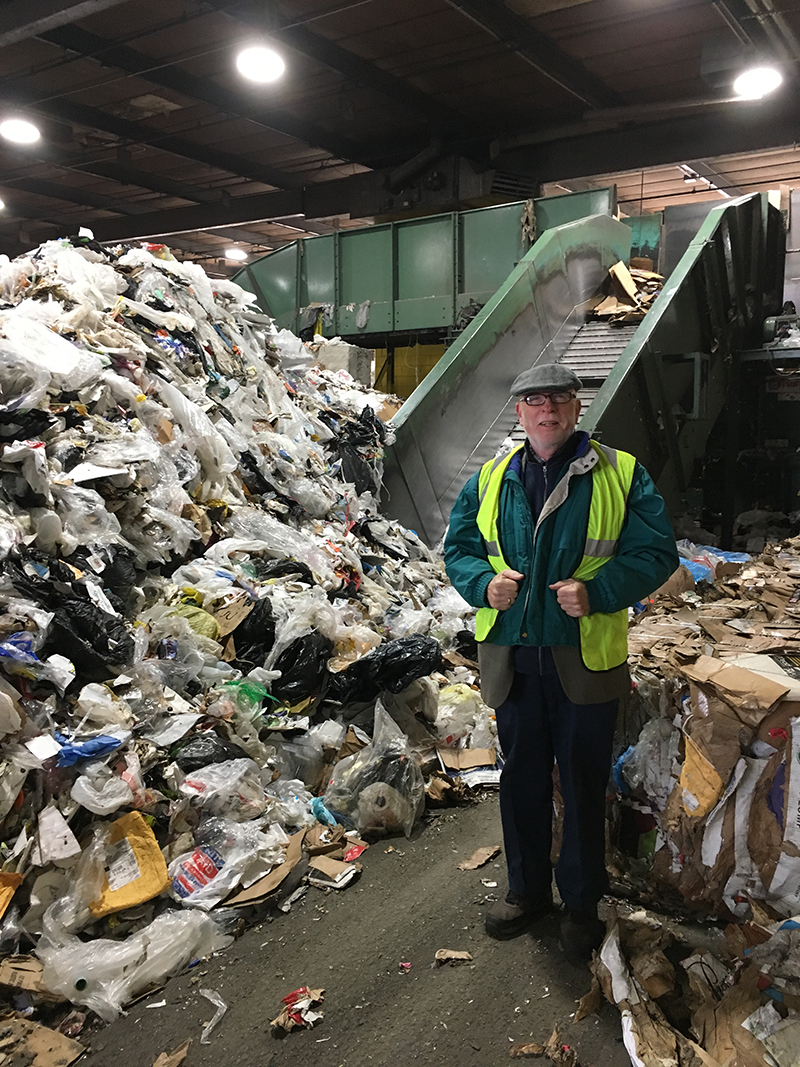
OVERVIEW
Pratt Institute, with approximately 5000 students and 1.8 million square feet of facilities in Brooklyn and New York City, is dedicated to teaching and practicing sustainability.
The Administrative Sustainability Department is housed under the Facilities Division and is dedicated to promoting and developing sustainable policies and practices for the Institute as well as coordinating the activities of the Campus as a Living Learning Laboratory in conjunction with the CSDS, Center for Sustainable Design Strategies.
The Director of Administrative Sustainability, Tony Gelber, works under the guidance of the Executive Director of Facilities and Capital Planning, Christopher Gavlick.

GLOBAL SUSTAINABILITY CHALLENGES
As humans have evolved over the millennia, sustainability challenges have been a part of the evolution. From fire burning cave dwellers to high rise multi-taskers, humans have always impacted the world they live in. This footprint, the ecological footprint, has grown tremendously, due in part to the sheer number of humans and also in part to their technological prowess. In particular, the industrial revolution has created enormous environmental challenges. The challenges of adequate space and food, clean water and clean air, have become increasingly dominant in the 21st century.
One of the more recent challenges, the anthropogenic, human caused, global warming and the resulting climate changes associated with it are stressing and stretching our resources to the limit. The causes of global warming include the loss of forests and the ice caps and the significant increases of carbon in the atmosphere. Carbon levels of approximately 200 ppm existed prior to the industrial revolution. Today levels have exceeded 350 ppm. Scientists believe this increase in carbon causes unstable climates as had existed approximately 20,000 years ago.
Recognizing this as a prominent problem Pratt has become a leader in addressing and teaching about sustainability in this age of carbon and climate change. Pratt has joined two challenges to address the cause of global warming, excess carbon in the atmosphere – The NYC Carbon Challenge and The AASHE/Second Nature, Presidents Climate Commitment.
Listed below is a summary of Pratt’s actions to both teach and practice sustainability and carbon reductions.
For additional information, please contact Tony Gelber, Director of Administrative Sustainability at argelber@pratt.edu.
PRATT:
- Reduced carbon-per-square-foot from building and operations by 23% since 2007
- Increased recycling and reuse from approximately 25% in 2007 to approximately 90% in 2017
- Between 90 and 95% of the solid waste is recycled or reused – approximately 848 tons were recycled or reused and approximately 94 tons went to a landfill. Material not recycled is reused for fuel in a waste to electricity plant.
- Increased storm water retention on campus by approximately 10% with the addition of permeable spaces at:
- Cct parking lot, Grand Ave, Campus east/west crosswalk, Under bicycle parking areas
- Renovated Higgins South as LEED Silver equivalent in 1998
- Designed and built Myrtle Hall as LEED Gold in 2010
- Purchased and operates one electric truck and two electric scooters for on-campus use out of a fleet of 13 vehicles
- Installed approximately 20 KW of solar PV on Myrtle Hall
- Meters energy consumption in approximately 42% of buildings to assist in managing energy use and is working to expand the monitoring program
- Is working to improve campus soil quality to improve plant hardiness and reduce the use of fertilizers
- Improved Food sustainability by:
- Purchasing approximately 20% of food and beverages from within a 250-mile radius of Brooklyn, NY
Adding organic labeled products to the menu
Providing vegan options at every meal.
- Purchasing approximately 20% of food and beverages from within a 250-mile radius of Brooklyn, NY
- Transportation – reduced single occupant, internal combustion engine vehicle use by:
- Promoting bicycle and mass transit use as follows:
- Campus bicycle programs:
- bicycle racks have been placed around the campus, many on permeable pavers to increase storm water retention
- a free bicycle helmet and fitting event is conducted most years in conjunction with the NYC DOT
- Promoted mass transit:
- the Institute participates in a program whereby faculty and staff can purchase metro cards passes using pre-tax dollars through the HR Department
- Flexible work week:
- many faculty can schedule their teaching loads so that that are not required to be at Pratt 5 days per week. This reduces travel in general.
- Promoting bicycle and mass transit use as follows:
- Developed an existing Climate Action Plan, which aims to achieve a 40% reduction in ghg by 2040, and is in the process of updating the Plan via an extensive campus “Roadmap” to achieve a low carbon and energy campus.
- The existing plan uses the wedge approach to reduce ghg by targeting lighting, controls, and switching from heavy oil to natural gas usage for boiler plants
Pratt has reduced per sf ghg by 23% from 2007 to 2017.
- The existing plan uses the wedge approach to reduce ghg by targeting lighting, controls, and switching from heavy oil to natural gas usage for boiler plants
- Developed policies and draft policies to influence behavior changes to promote sustainability
- Policies
- Clean air – no smoking is allowed on Pratt grounds or in Pratt buildings
- All major construction to be LEED Silver equivalent
- Myrtle Hall, LEED Gold, low energy building approximately 125,000 sf
- IPM, integrated pest management:
- Pratt uses IPM to control pests and minimize the environmental hazards to people and the environment
- Green Cleaning products, Green Seal or Ecologic are preferred when available and effective. We have migrated from a multi-product, non-condensed set of products to a 2 product condensed system. This has eliminated many products including cans, and bottles and the transport costs and energy uses to get them to the site. [
- Draft Policies submitted for review:
- No idling of any vehicles on the Pratt campus
- Sustainable purchasing policies
- Policies
- Developed Initiatives to increase sustainability:
- The GiveTake Program. This innovative reuse program collects used but useful art materials and returns them free of charge to students on a first come basis
- Campus bicycle programs:
- bicycle racks have been placed around the campus, many on permeable pavers to increase stormwater retention
- a free bicycle helmet and fitting event is conducted most years in conjunction with the NYC DOT
- Campus as a Living Learning Lab
- Green Week – this is a weeklong Spring program is series of events and activities to promote sustainability campus wide. Several of the Green Weeks involved coordination with the Pratt America Reads Program and the education of local community pre-k through middles school students, teachers and parents
- Blue Week – this week long Fall program is a series of events to promote policies and practices of one of our most precious resources clean water
- Facilities/Faculty/Student Interactions – these are generally one off events where Facilities interacts with faculty and students on current sustainability topics of carbon, waste, water, agriculture
LOOKING FORWARD
Pratt is currently planning for the future with:
- The Roadmap
- This will be a yearlong effort to collect and analyze energy and carbon data and develop scenarios with costs and paybacks which will guide Pratt in achieving significant additional reductions in campus carbon generation and energy use.
- The Roadmap will have the following components:
- A review and analysis of central plant and the steam and electrical distribution on campus
- A level II ASHRAE audit of building system to identify energy savings opportunities
- An updated Climate Action Plan to replace the existing plan
- A “guide” for building renovations so that the desired carbon and resiliency outcomes occur during every building renovation
- An implementation and funding plan to assist Pratt in planning and financing the implementation of the Roadmap.
- Campus as a Living Learning Laboratory
- The Administrative Director is working closely with the Director of the CSDS to improve the Campus as a Living Learning Laboratory
CUSTOMER SERVICE WORK ORDER REQUEST
Emergency and service work requests are received at the Customer Service Desk from 7:30 AM–5 PM, by telephone at 718.636.3579, or e-mail facility@pratt.edu. This might include cleaning, repair work, etc. After-hours emergency and service calls should be directed to security at 718.636.3540
Please visit our online service request form.